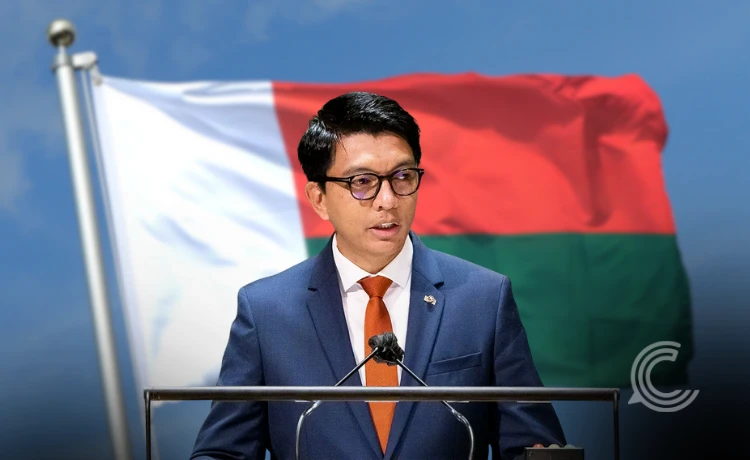Madagascar President Dissolves Parliament Amid Crisis

Key Highlights–
- President Andry Rajoelina dissolves the National Assembly amid military defection and escalating protests.
- Opposition questions legality, saying key parliamentary figures were not consulted.
- Rajoelina fled to a “safe place,” blocking impeachment and deepening the political crisis.
Madagascar’s President Andry Rajoelina announced on Tuesday the immediate dissolution of the National Assembly, intensifying a political standoff that has seen parts of the military join youth-led protests and forced the president into hiding.
Political Upheaval in Madagascar
In a decree shared via the presidency’s official Facebook page, Rajoelina asserted that he had consulted leaders of both the assembly and the Senate before issuing the order. However, the opposition swiftly challenged its legality, with Siteny Randrianasoloniaiko, one of the assembly’s vice presidents, stating that the “decree is not legally valid … the president of the National Assembly says he was not consulted.”, as reported by Reuters.
The dissolution comes at a critical moment, as the lawmakers were actively gathering signatures to initiate impeachment proceedings against Rajoelina, a move that now appears blocked by his executive decree.
Military Defections & Leadership in Hiding
Over the weekend, tensions escalated dramatically when an elite military unit known as CAPSAT broke ranks with the government and joined protestors demanding Rajoelina’s resignation.
With the military faction declaring control over the armed forces, Rajoelina said in a video address from an undisclosed location that he had fled the country to a “safe place” for his protection, though he did not specify where.
Furthermore, in defiant remarks, he denounced what he described as an “attempt to seize power illegally and by force,” and called for dialogue while insisting the constitution be respected.
A military source told a leading news agency that Rajoelina left the country via a French military aircraft on Sunday, and was coordinated with French authorities.
Protests Fuelling the Crisis
The unrest stems from a groundswell of Gen Z-led protests launched late September. What began as demonstrations over frequent water and power outages quickly morphed into broader anti-government rallies demanding transparency, accountability, and an end to corruption.
At least 22 people have reportedly died in clashes, with over 100 injured, injuries attributed to clashes between protestors and security forces.
The protests have drawn comparisons to other youth-driven movements globally, such as in Nepal and Kenya, where youthful discontent sparked major political change.
Legal, Institutional & Political Fallout
With the assembly dissolved, Rajoelina effectively forestalled any impeachment attempts. The opposition and other legal voices argue that his decree lacks a constitutional basis, citing procedural errors, particularly the absence of consultation with the assembly head.
The decree also called for new elections to be held within 60 days, though given the instability and institutional breakdown, such a timeline appears ambitious.
In recent days, Rajoelina had already dissolved his government in an earlier bid to placate protesters and consolidate power, a move seen by critics as a precursor to his escalating measures.
What Comes Next
The standoff in Madagascar could unfold in several ways. If the military continues backing the opposition, Rajoelina may find his presidency untenable. The constitutional framework is under strain, and with legislative and judicial bodies co-opted or sidelined, the rule of law risks being eclipsed by brute political logic.
Meanwhile, the youth movement shows no sign of abating. Protesters in Antananarivo continue to demand Rajoelina’s resignation and accountable governance, as stated by the AP News.
Madagascar faces a severe crisis. If President Rajoelina cannot swiftly reassert control or broker a peaceful settlement, the island risks sliding into a prolonged power vacuum and institutional collapse. This outcome would carry profound consequences, threatening the security and stability of the entire Indian Ocean region.